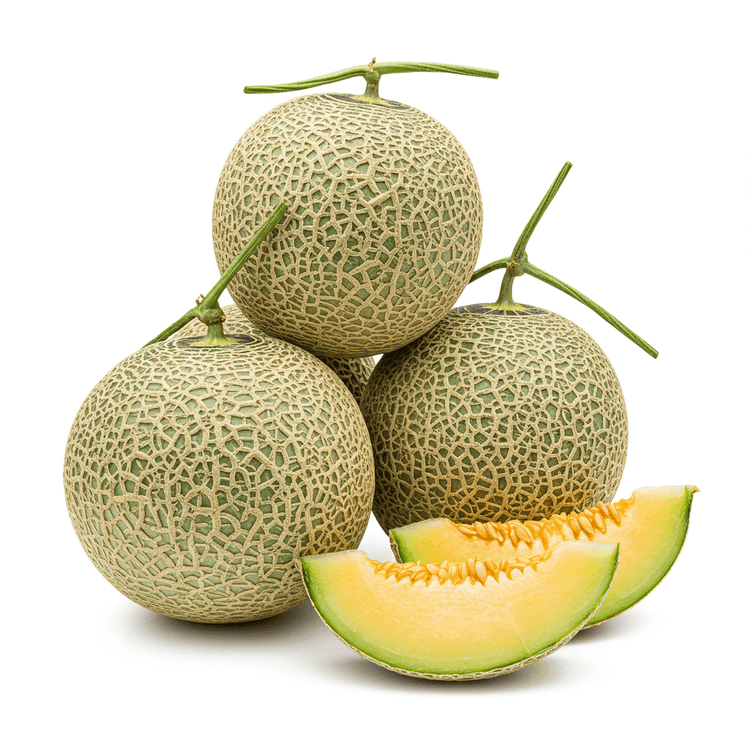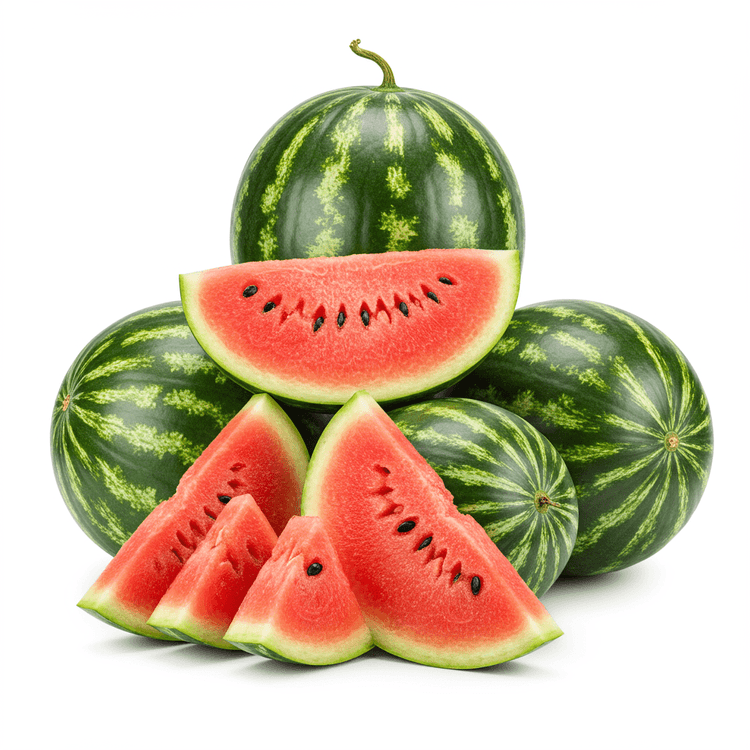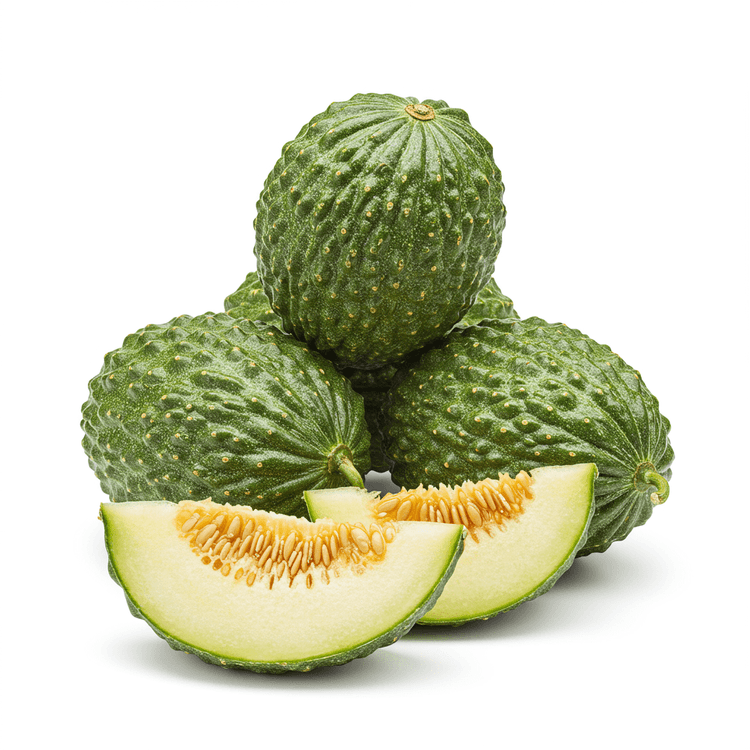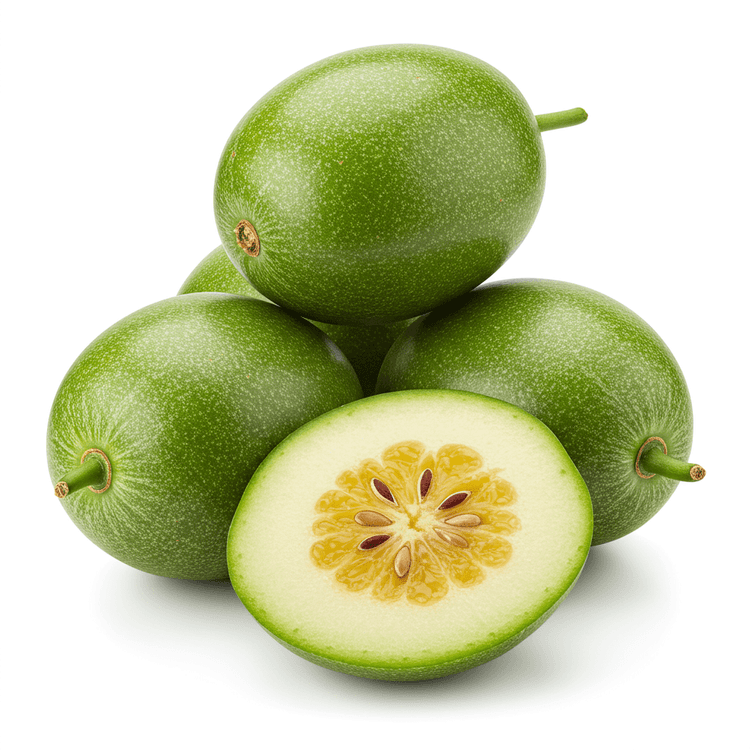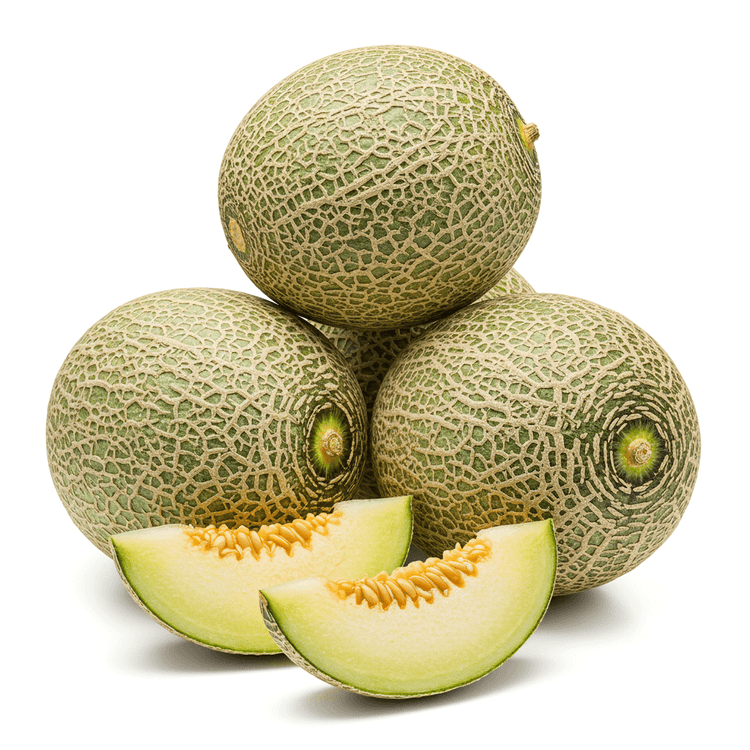
Casaba Melon
The casaba melon is a large, round to oval-shaped winter melon characterized by its smooth, hard, golden-yellow rind and pale green to creamy white flesh. Its flavor is subtly sweet and mild, often described as having a slightly cucumber-like or honeydew-like taste. The texture of casaba melon is firm and crisp when ripe, making it a refreshing and hydrating choice. Because of its delicate taste, casaba melon is best when fully ripe; look for a heavy melon with a slightly waxy feel. Many people enjoy chilled casaba melon as a healthy snack or dessert.
Common Uses
- Enjoy casaba melon sliced and chilled as a refreshing and hydrating snack or dessert. Its mild sweetness is perfect on a hot day.
- Dice casaba melon and add it to fruit salads for a subtle sweetness and crisp texture. It pairs well with other melons, berries, and tropical fruits.
- Use casaba melon in smoothies and juices for added hydration and a light, refreshing flavor. Combine it with other fruits and vegetables for a healthy beverage.
- Pickle casaba melon rind for a unique and tangy condiment. The firm rind holds its shape well during pickling.
- Grill or pan-sear casaba melon slices for a warm, caramelized treat. The heat brings out its natural sweetness.
- Puree casaba melon and use it as a base for cold soups or sorbets. Its mild flavor makes it a versatile ingredient.
Nutrition (per serving)
Nutrition (per serving)
Calories
33.0kcal (1.65%)
Protein
0.5g (1%)
Carbs
8.2g (2.98%)
Sugars
8.0g (16%)
Healthy Fat
0.0g
Unhealthy Fat
0.0g
% Daily Value based on a 2000 calorie diet
Nutrition (per serving)
Calories
33.0kcal (1.65%)
Protein
0.5g (1%)
Carbs
8.2g (2.98%)
Sugars
8.0g (16%)
Healthy Fat
0.0g
Unhealthy Fat
0.0g
% Daily Value based on a 2000 calorie diet
Health Benefits
- May support hydration due to its high water content.
- Could aid digestion as it is a source of dietary fiber.
- A potential source of vitamin C, which supports immune function.
- Contains potassium, an electrolyte important for maintaining healthy blood pressure.
- May contribute to skin health thanks to its vitamin and mineral content.
Chefadora AI is here.
Experience smarter, stress-free cooking.
Storage Tips
Casaba melons are best stored at room temperature until ripe. Once ripe, they should be refrigerated to slow down the ripening process and prevent spoilage. Wrap the cut melon tightly in plastic wrap or store it in an airtight container to maintain its moisture and prevent it from absorbing odors from other foods in the refrigerator. Casaba melon can also be frozen; cut it into cubes and freeze them in a single layer on a baking sheet before transferring to a freezer bag for longer storage. Frozen melon is best used in smoothies or blended drinks.
Marnirni-apinthi Building, Lot Fourteen,
North Terrace, Adelaide, South Australia, 5000
Australia
